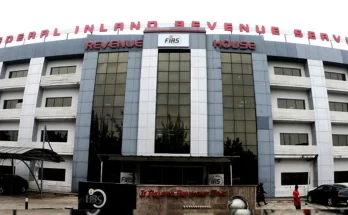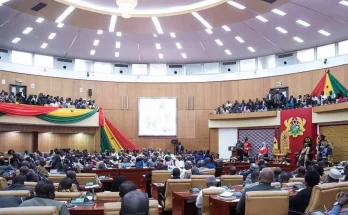Nigeria: Tinubu to Sign Four Tax Bills into Law. Nigeria is on the brink of a significant tax reform milestone, as President Bola Ahmed Tinubu is scheduled to sign four pivotal tax-related bills into law today, Thursday, June 26, 2025.
According to the Presidency, the bills—recently passed and harmonized by the National Assembly—are expected to lay a solid foundation for improved tax administration, enhanced revenue generation, and a more business-friendly fiscal environment.
The signing ceremony is slated to take place at the Presidential Villa in Abuja and will be attended by key government officials, including the Senate President, the Speaker of the House of Representatives, and the Chairmen of the Senate and House Committees on Finance.
Also expected at the event are the Chairman of the Governors’ Forum, the Minister of Finance and Coordinating Minister of the Economy, and the Attorney General of the Federation.
A Shift Toward Modern, Efficient Tax Administration
In a statement issued by Mr. Bayo Onanuga, Special Adviser to the President on Media and Strategy, the administration emphasized that the new legislation will drive greater efficiency, coordination, and accountability across Nigeria’s tax ecosystem.
“When the new tax laws become operational, they are expected to significantly transform tax administration in the country, leading to increased revenue generation, improved business environment, and a boost in domestic and foreign investments,” the statement read.
Uganda Revenue Authority Urges Landlords to File Rental Income Tax Before June 30 Deadline
Breakdown of the Four Tax Bills
1. Nigeria Tax (Ease of Doing Business) Bill
This bill seeks to harmonize Nigeria’s complex and often duplicative tax system. By reducing the number of taxes and merging overlapping provisions, it aims to ease taxpayer compliance and encourage formal business operations. The reform is also expected to increase predictability in fiscal policy.
2. Nigeria Tax Administration (Standardization) Bill
This legislation provides a uniform legal and operational framework for tax collection and enforcement at the federal, state, and local levels. It will help streamline tax authority interactions, eliminate confusion around jurisdiction, and promote uniform practices.
3. Nigeria Revenue Service (Establishment) Bill
This bill repeals the Federal Inland Revenue Service Act and replaces it with a modern, autonomous Nigeria Revenue Service (NRS). The NRS will have expanded powers, including the administration of non-tax revenues, and will be held to higher standards of transparency, digital adoption, and performance monitoring.
4. Joint Revenue Board (Establishment) Bill
This legislation establishes a collaborative governance structure to ensure better coordination between federal and sub-national tax authorities. It also introduces new institutions such as a Tax Appeal Tribunal and a Tax Ombudsman to enhance taxpayer rights, dispute resolution, and oversight.
A New Era for Nigerian Tax Policy
Analysts believe the legislation signals a deliberate shift toward a rules-based, citizen-centric tax administration model. With tax-to-GDP ratios still below global averages, the federal government is counting on these reforms to unlock non-oil revenue potential and improve public finance sustainability.
By addressing long-standing structural gaps—such as overregulation, fragmented laws, and overlapping collection mandates—Nigeria is positioning itself for stronger compliance, greater investor confidence, and a more inclusive tax culture.
As the tax reform era officially begins with President Tinubu’s assent, tax practitioners, businesses, and policymakers alike will be watching closely to assess the real-world impact of these ambitious new laws.




